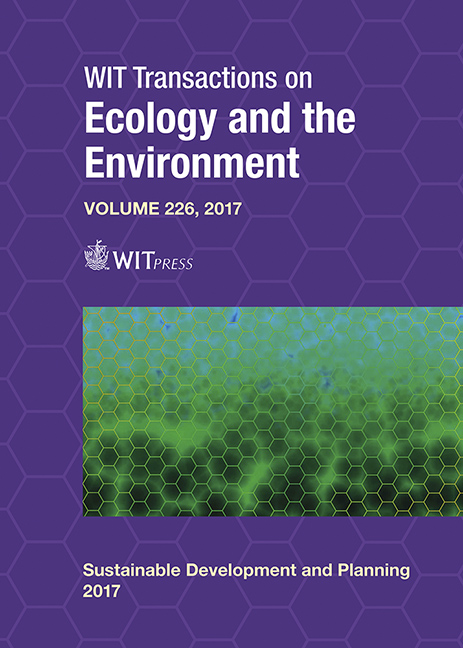ENVIRONMENTAL STRATEGY OF UNIVERSITIES OF SOUTHERN BRAZIL
Price
Free (open access)
Transaction
Volume
226
Pages
11
Page Range
229 - 239
Published
2017
Size
464 kb
Paper DOI
10.2495/SDP170201
Copyright
WIT Press
Author(s)
ELIS MARINA TONET MOTTA, JULIANO RODRIGUES GIMENEZ, VANIA ELISABETE SCHNEIDER
Abstract
The incorporation of environmental issues to strategic planning, called environmental strategy, has been presented as an opportunity for organizations to effectively manage the various pressures and challenges that contemporaneity has been requiring in terms of sustainability. The number of high education institutions that highlight sustainability in their strategy have been increasing during the last few years. Some reasons for this are the increase of competition in the sector, the imposed pressure for their stakeholders and their responsibility in teaching and promoting the principles of environmental ethics and sustainable development. Based on that, this study has the goal of evaluating the environmental strategy of three community institutions of higher education in southern Brazil, based on their employees’ perception. To achieve the goal, a research-diagnosis study was conducted through a structured questionnaire in a digital format, in which the measurement of respondents’ opinions was performed using a Likert Scale of five points. The results were evaluated based on descriptive statistics and categorized according to the environmental strategies presented on the natural resource-based view framework. It was possible to identify that each community institution of higher education that participated in the study presented a different environmental strategy, based on natural resource-based view framework. The results also indicate that even the University that presents the most developed environmental strategy has problems in disseminating environmental information through its organizational structure, based on employees’ perception.
Keywords
environmental strategy, higher education institutions, pollution prevention, product stewardship, sustainable development





